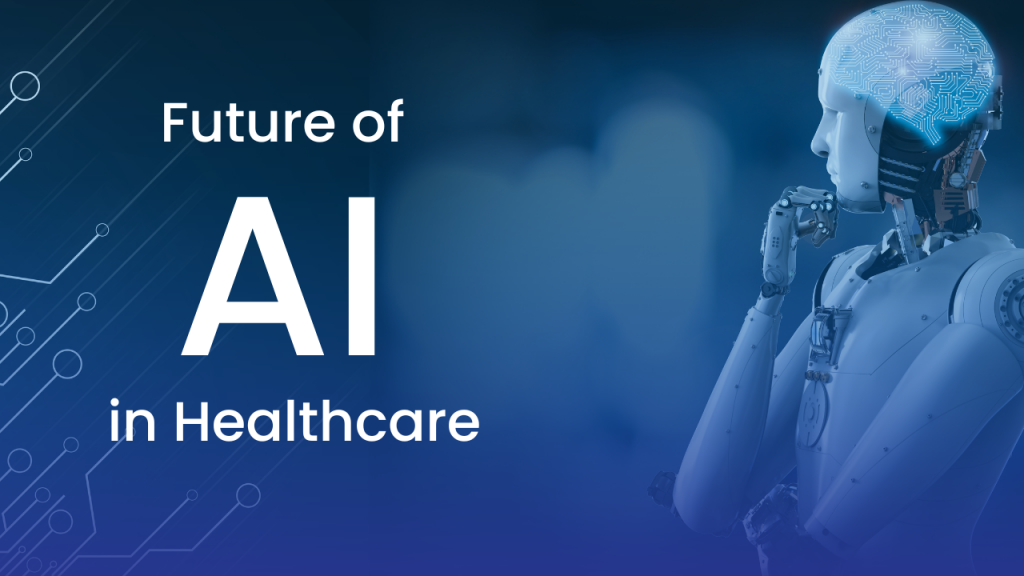
AI in Healthcare: Revolutionizing Diagnosis and Treatment
1. Enhanced Diagnostics
Early and Accurate Detection
AI algorithms can analyze medical images, such as X-rays, MRIs, and CT scans, with remarkable precision. By comparing these images to vast databases of medical data, AI can identify patterns and anomalies that might be missed by human eyes, leading to early and accurate detection of diseases such as cancer, cardiovascular conditions, and neurological disorders.
Predictive Analytics
AI-driven predictive analytics can assess a patient’s risk of developing certain conditions based on their medical history, genetic information, and lifestyle factors. This allows healthcare providers to implement preventive measures and monitor high-risk patients more closely.
Benefits of Enhanced Diagnostics
Early Detection: Identifying diseases at an early stage improves the chances of successful treatment and recovery.
Accuracy: AI reduces the likelihood of misdiagnoses, ensuring that patients receive the correct treatment promptly.
Efficiency: Automated analysis of medical images and data speeds up the diagnostic process, reducing the workload on healthcare professionals.
2. Personalized Treatment Plans
Tailored Therapies
AI can create personalized treatment plans by analyzing individual patient data, including genetic information, lifestyle, and medical history. This approach ensures that treatments are tailored to the unique needs of each patient, improving their effectiveness and reducing the risk of adverse reactions.
Drug Development and Precision Medicine
AI is accelerating drug discovery and development by predicting how patients will respond to different medications. This helps in developing precision medicine, where treatments are customized based on a patient’s genetic profile, leading to more effective and targeted therapies.
Benefits of Personalized Treatment Plans
Effectiveness: Personalized treatments are more likely to succeed as they are tailored to the patient’s specific conditions.
Reduced Side Effects: Customized therapies minimize the risk of adverse reactions and unnecessary treatments.
Innovative Treatments: AI-driven drug development leads to the creation of new and effective medications.
3. Streamlined Administrative Tasks
Automating Routine Tasks
AI can automate administrative tasks such as scheduling appointments, managing patient records, and billing. This reduces the burden on healthcare staff, allowing them to focus more on patient care.
Natural Language Processing (NLP)
NLP, a branch of AI, can analyze and interpret vast amounts of unstructured data from medical records, research papers, and clinical notes. This helps in extracting valuable insights and streamlining documentation processes.
Benefits of Streamlined Administrative Tasks
Time Savings: Automation of routine tasks frees up time for healthcare professionals to spend on patient care.
Reduced Errors: AI ensures accuracy in administrative processes, reducing the likelihood of human errors.
Improved Efficiency: Streamlined administrative tasks enhance the overall efficiency of healthcare operations.
4. Remote Monitoring and Telehealth
Wearable Technology
AI-powered wearable devices can monitor vital signs such as heart rate, blood pressure, and glucose levels in real-time. These devices provide continuous health monitoring, enabling early detection of potential health issues and allowing for timely intervention.
Telemedicine
AI enhances telemedicine platforms by providing real-time data analysis and decision support tools for healthcare providers. This ensures that patients receive accurate diagnoses and treatment recommendations during virtual consultations.
Benefits of Remote Monitoring and Telehealth
Accessibility: Telehealth expands access to healthcare, especially for individuals in remote or underserved areas.
Continuous Monitoring: Wearable devices provide ongoing health monitoring, enabling proactive healthcare management.
Convenience: Patients can receive medical care from the comfort of their homes, reducing the need for in-person visits.
5. Improved Patient Outcomes
Enhanced Treatment Adherence
AI can help in monitoring patient adherence to treatment plans by tracking medication intake and providing reminders. This ensures that patients follow their prescribed therapies, leading to better health outcomes.
Patient Education and Engagement
AI-powered chatbots and virtual health assistants can provide patients with information about their conditions, treatment options, and lifestyle modifications. This empowers patients to take an active role in their healthcare and make informed decisions.
Benefits of Improved Patient Outcomes
Adherence: Improved adherence to treatment plans leads to better health outcomes and reduced hospital readmissions.
Empowerment: Educated and engaged patients are more likely to manage their health effectively.
Quality of Life: Enhanced patient outcomes improve overall quality of life and patient satisfaction.
Conclusion
AI is revolutionizing healthcare by enhancing diagnostics, personalizing treatments, streamlining administrative tasks, and improving patient outcomes. As AI technology continues to advance, its integration into healthcare systems will likely deepen, leading to more efficient, effective, and accessible healthcare services. Embracing AI in healthcare is essential for meeting the evolving needs of patients and healthcare providers in the 21st century. The future of healthcare is intelligent, personalized, and driven by AI.